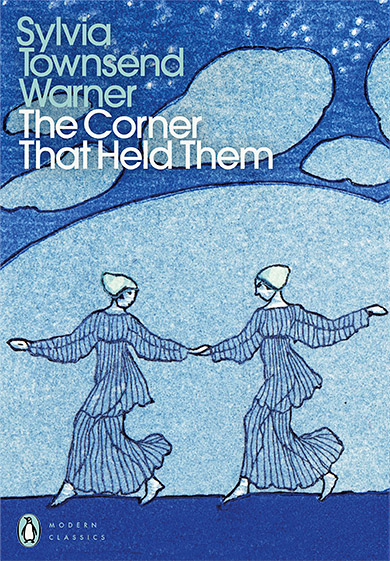 The latest Journal of the Sylvia Townsend Warner Society is now available to read online from UCL Press. The issue includes Peter Swaab’s 2019 lecture, ‘Sylvia Townsend Warner and the Possibilities of Freedom’; an essay from David Trotter titled ‘Posthuman? Aeroplanes, Animal Corpses and Very High Frequencies in the Work of Valentine Ackland and Sylvia Townsend Warner’; and the first of a two-part sequel to Warner’s 1948 novel, The Corner That Held Them.
The latest Journal of the Sylvia Townsend Warner Society is now available to read online from UCL Press. The issue includes Peter Swaab’s 2019 lecture, ‘Sylvia Townsend Warner and the Possibilities of Freedom’; an essay from David Trotter titled ‘Posthuman? Aeroplanes, Animal Corpses and Very High Frequencies in the Work of Valentine Ackland and Sylvia Townsend Warner’; and the first of a two-part sequel to Warner’s 1948 novel, The Corner That Held Them.
The Corner That Held Them was Warner’s own favourite novel. ‘I think it is the best book I have ever written,’ she wrote to Paul Nordoff. ‘It is certainly the book that I have most written, the one that is most me.’ She worked on it between 1941 and 1947 and found it hard to let go. ‘It has really been agony doing the final proofs of the novel. I love it so much I can’t bear to part with it.’ So much so, indeed, that she didn’t completely part with it but instead began a sequel, of which the Warner–Ackland Archive houses 58 typed pages, published here for the first time.
The narrative of the sequel carries on almost immediately after the conclusion of the novel, following Dame Sibilla after she has decided to abscond from the nunnery at Oby to join a pilgrimage headed for Jerusalem. Warner wrote to a friend that ‘I love him [Chaucer] so much that I had the greatest difficulty keeping him out of Oby’. Indeed, the sequel embraces the Chaucerian setting of a group of pilgrims on the road, in this case heading beyond Canterbury to Jerusalem. As in the novel, in which the centre of consciousness moves fluidly from one figure to another, the narrative shows the group of pilgrims first from Sibilla’s perspective, before moving on to two of the other pilgrims, Martin Hawte and Wilkin Shaw. We see the pilgrims join in singing – the last voice falling silent ‘as a frozen bird falls off the bough before the first rays of the thawing sun’ – squabbling, and comparing the taste of faggots in a cathedral town against the previous year.